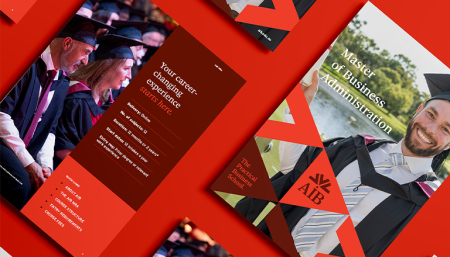How to change career: Tips for a smooth transition

There are many reasons why people choose to change professions, ranging from better pay and personal fulfilment to a more flexible work-life balance and greater job stability. Whatever the reason behind changing course and starting a new career, it’s important to approach the change with careful consideration of all aspects as it can be a life-altering decision.
This article explores how to change careers with practical tips to help you smoothly transition into a new line of work. From understanding why you want to switch to planning the steps ahead, let’s ensure your career change is a rewarding and hassle-free journey.
Assess your current situation
The first stage in your career change journey is self-reflection, where you explore who you are and what you want out of life. Start by understanding why you are not feeling satisfied in your current role. Make a list of the things you like and dislike about your current job, and how the work makes you feel. This could include anything from the work environment and the tasks you perform daily to the organisation’s culture or the growth opportunities. Whether you’re feeling tired, stressed, or unfulfilled, a summary will help you gain a clearer grasp on what you are looking to break free from and the new direction you want to head towards.
You might be looking to broaden your horizons, benefit from a more flexible work schedule, get more fulfilment and joy out of your work or improve your pay prospects. Then, take note of the skills and interests you currently possess and whether these can be easily tailored to a new position. Consider both your hard skills, such as technical abilities and certifications, and your soft skills, such as communication, leadership and problem-solving. In many cases, you can build on your existing skills with additional specialised training or an MBA program to make them relevant in a new career path.
Research your career options
Once you have a clear understanding of what you’re looking for in a new role, it’s time to research your career options. If there’s a particular area, industry or role that seems especially appealing, then make it your mission to learn as much as you can about that profession. Here are some helpful actions to consider as you make your decision:
- Connect with professionals currently working in your field of interest and ask them plenty of questions
- Request to shadow someone in the profession to see firsthand what their job looks like in action
- Take a career aptitude test to see what your personal and professional traits suggest about a potential line of work
- Volunteer in your chosen work environment in your spare time to get a sense of what’s required
- Research the career responsibilities online including on forums as learning more about it will give you a valuable insight
- Attend online and in-person events related to your chosen career such as webinars, networking events and conferences
- Engage with industry-specific material such as trade publications, magazines and podcasts
By getting acquainted with the profession as much as possible, you’ll build a good sense of the day –to-day out routine you can expect. Often we have career aspirations that seem appealing in theory, but the reality of the job’s demands may not live up to our expectations.

Obtain the right skill set for your new career
Once you’ve settled on a path and understand what it’s really like to work in that profession, it’s time to focus on upskilling. It may be that you already have a unique set of skills which are transferable to your new profession, but if you’re looking to make a bigger leap it’s likely you’ll need additional training.
Whether it’s a new career in management, marketing or finance, there are a range of MBA options to get you where you need to be, and you can refine your skill set even further by choosing certain electives like Digital Marketing, Business Consulting or Global Supply Chain Management.
If you’re planning to go down a completely different career avenue, such as learning a trade like plumbing or carpentry, then you will have to achieve the relevant qualifications first by taking a trade course.
You may be wondering, ‘How can I change career if I’m currently employed full-time?’ It can seem daunting, but with careful planning and time management, you can successfully navigate this transition. Many courses only require 10-20 hours per week, so it’s possible to undertake them alongside your current job if you have the time and motivation. Some online courses, such as AIB MBA, give you 24/7 access to course content, giving you the flexibility to study when it suits you.
Find the perfect position for you
Once you have the relevant skills and qualifications under your belt, you’ll need to craft a new resume that highlights your achievements and strong desire to work in your chosen industry.
Even if your goal is to become self-employed, it’s still useful to update your CV and add it to your LinkedIn or Indeed profile so potential employers can find you. A strong online presence can increase your visibility and help you build valuable relationships.
If you already have your eye on the kind of business you want to work in, or even a specific company you’ve always dreamed of working for, now’s your chance to seize that opportunity. Utilise your network to connect with current or former employees to gain insight into their hiring processes or potential job openings.
Search the job market for relevant positions and use the interviews to emphasise that you’ve changed your career especially to be working in that kind of role and environment. This highlights your passion and dedication to the role. The more active you are in your professional development, the more appealing you’ll be to potential employers.
Your new career is just around the corner
Whether you want to lead in the c-suite, work hands-on in a technical role or start your own business, there are always challenges that need to be overcome to achieve your dream job. Don’t be afraid to invest in further education or certifications, such as an MBA, to boost your expertise.
Fear of failure is a major setback that can stop your career transition in its tracks before it’s even begun. It’s important to put those doubts behind you and stay focused as you keep your end goal in mind. By taking time to reflect on your goals, do thorough research and gradually build the necessary skills, you can make the transition more manageable.
When you believe in your potential and proactively follow these key career transition tips there’s nothing standing in the way of your success.






